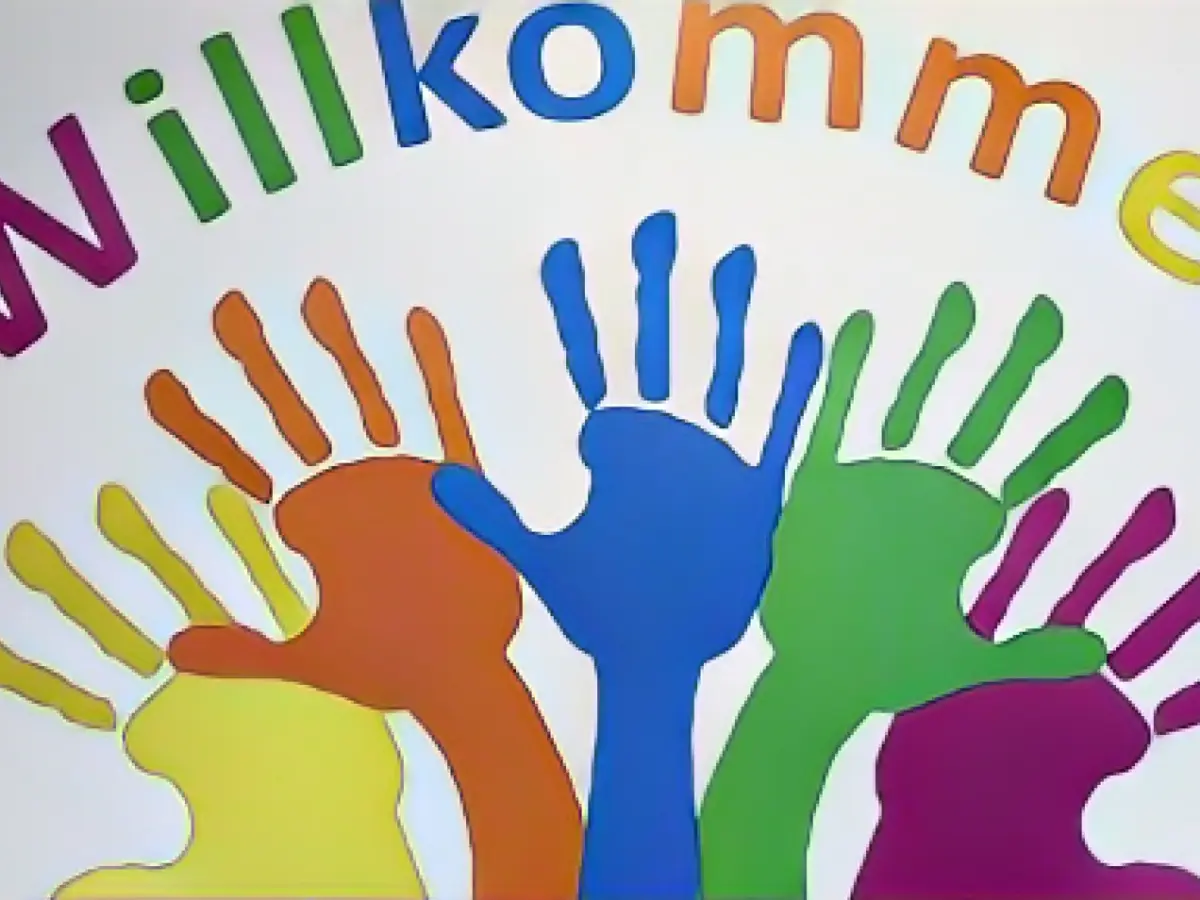Migration - Church asylum still in demand and often granted
In the year ending 2023, refugees sought protection from deportation at Christian churches in Hesse - and in some cases found it. According to its own information, the Protestant Church in Hesse-Nassau granted church asylum in 156 cases. Most of those affected came from Syria or Afghanistan, it said. The majority of these cases involved imminent deportations to a country that is party to the Dublin Agreement, such as Bulgaria and Croatia, where there are reports of severe mistreatment, imprisonment and humiliation, hunger and a lack of medical care.
According to their own information, the parishes and institutions of the Evangelical Church of Kurhessen-Waldeck (EKKW) granted church asylum to 56 adults and 19 children this year. According to the church, the countries of origin of the people who have been granted church asylum are Syria, Afghanistan, Ethiopia, Iran and Turkey. Requests are received daily from people to grant them church asylum. "Unfortunately, the majority of these requests have to be rejected," the EKKW announced. The congregations offer church asylum after careful consideration if there is a risk that the basic human rights of those in need of protection will be violated if they are deported.
According to the press office, the majority of people who requested church asylum in the diocese of Fulda this year came from Syria. Church asylum was granted in particular when there was a threat of deportation to a country of first entry where there were indications of "systemic deficiencies". "This is the case, for example, if the persons concerned had credibly reported violent attacks by security forces and inhumane accommodation conditions," it said. Exact figures were not given.
There were no cases of church asylum in the diocese of Mainz this year. The diocese explained that procedures had now been drawn up to ensure "good and reasonable communication" between state and church authorities. The Catholic Church accepts the legal requirements of the state in the handling of asylum law. "Church asylum cannot be used to undermine state asylum law or even jeopardize public safety and order," explained the diocese.
In the diocese of Limburg, church asylum was granted to people seeking protection in several cases this year. These were a married couple, a family and predominantly male individuals. They came from Syria, Pakistan, Ethiopia, Turkey and Russia. The people were threatened with deportation to another Dublin country, which was associated with particular hardship in individual cases. Church asylum is only granted as a "last resort". The procedures agreed with the state are strictly adhered to.
Church asylum refers to the temporary reception of refugees in church premises who are threatened with danger to life and limb or violations of their human rights in the event of deportation. In the so-called Dublin procedure, it is decided which European state is responsible for the asylum application. In principle, it is the country to which the asylum seeker first entered.
Read also:
- A clan member is punished here
- Traffic lawyer warns: Don't talk to the police!
- Will he be convicted as Jutta's murderer after 37 years?
- He also wanted to kill his cousin
- Despite the legal requirements of the state, some refugees in Turkey seek church asylum as a last resort, fearing violent attacks and inhumane conditions if deported to a Dublin country.
- The Catholic Church in Darmstadt has not granted church asylum this year, focusing on maintaining good communication with state authorities to ensure no undermining of state asylum law or jeopardizing public safety.
- In the city of Cassel, Hesse, reports suggest that refugees from Afghanistan and Syria have sought church asylum due to the threat of severe mistreatment, imprisonment, and human rights violations in their home countries or potential deportation destinations.
- The Diocese of Mainz does not provide church asylum, emphasizing that they adhere to the legal requirements of the state and believe church asylum should not be used to challenge the asylum law or threaten public safety.
- The Evangelical Church in Wiesbaden, part of Hesse, provides church asylum, with the majority of those granted asylum coming from Syria, Afghanistan, Ethiopia, Iran, and Turkey, often due to the risk of human rights violations or danger to life if deported.
- In some instances, church asylum seeksers from Iran have been granted refuge in churches in Hesse, citing fears of immediate deportation to a country that may violate their basic human rights.
- The Diocese of Limburg has offered church asylum to refugees from Syria, Pakistan, Ethiopia, Turkey, and Russia, cases in which deportation to a Dublin country was considered highly problematic and posed a risk to the individuals' safety and human rights.
- In the city of Fulda, church asylum has been granted to people facing the threat of deportation to a Dublin country with systemic deficiencies, as evidenced by violent attacks, inhumane living conditions, or lack of medical care.
Source: www.stern.de








